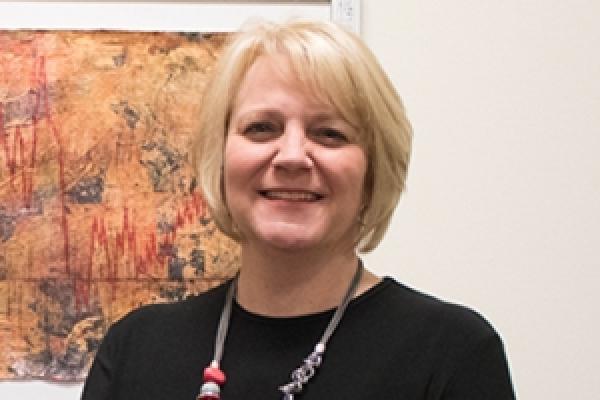Box-Steffensmeier elected next president of APSA

Janet Box-Steffensmeier, Vernal G. Riffe Professor in Government and Politics in the Department of Political Science, has been elected as the next president of the American Political Science Association (APSA). Box-Steffensmeier is also a member of the Mershon Center Oversight Committee.
The APSA is the leading professional organization for the study of political science and serves more than 11,000 members in more than 100 countries. Box-Steffensmeier will serve as president-elect in 2019-2020 before assuming the office of president in 2020-2021. She began her service this month after the APSA Annual Meeting and Exhibition in Washington, D.C.
“APSA is the preeminent body for advancing the profession and engaging in the myriad issues facing higher education, the nation, and the world,” Box-Steffensmeier wrote in her statement of views for the APSA. “The study of political science has immense collective value for understanding and addressing the major issues of our time and those of an enduring nature.”
Box-Steffensmeier most recently served as interim executive dean and vice provost of the College of Arts and Sciences from 2018-2019. Prior to leading the College of Arts and Sciences, she served as divisional dean for social and behavioral sciences and dean of Arts and Sciences graduate studies from 2014-2018. In addition to her faculty appointment in the Department of Political Science, she also holds a courtesy appointment in the Department of Sociology.
Her research in political methodology leverages the lenses of both institutions and culture. She also works in the areas of event history, time series and network methodologies. She has published articles in numerous journals, including American Political Science Review, American Journal of Political Science, Journal of Politics and Political Methodology. She has received four best-article awards on topics of elections, legislative politics and political methodology.
Box-Steffensmeier was elected a Fellow of the American Academy of Arts and Sciences in 2017 and an inaugural Fellow of the Society for Political Methodology in 2018. She served as president of the Midwest Political Science Association in 2012 and of the Society for Political Methodology from 2005-2007; she was the society’s first woman president.
The Box-Steffensmeier Graduate Student Award, given annually by the Interuniversity Consortium for Political and Social Research (ICPSR), is named after her in recognition of her contributions in political methodology and her support of women in the field. She has received both distinguished mentoring and teaching awards, including the ICPSR’s Warren Miller Award for Meritorious Service to the Social Sciences and the Outstanding Professional Achievement for Scholarship and Mentorship Award from the Midwest Political Science Association Women’s Caucus.
Box-Steffensmeier’s statement of views for APSA
APSA is the preeminent body for advancing the profession and engaging in the myriad issues facing higher education, the nation and the world. The study of political science has immense collective value for understanding and addressing the major issues of our time and those of an enduring nature. It is vital that our members and their work are supported and celebrated as they strive to understand and solve complex problems while communicating potential solutions to peers, decision makers and the public. It is our collective advantage to do so as a discipline that embraces pluralistic methodologies. APSA is uniquely positioned to make an impact by embracing, welcoming and more deeply engaging political scientists from a variety of backgrounds who are pursuing academic, industry and public service careers and fostering those relationships for the benefit of all in our research, teaching and service. As the leading organization for the study of political science, it is critically important to foster both community and the diversity of ideas as well as personal diversity in our profession.
Story originally published by the College of Arts and Sciences.
